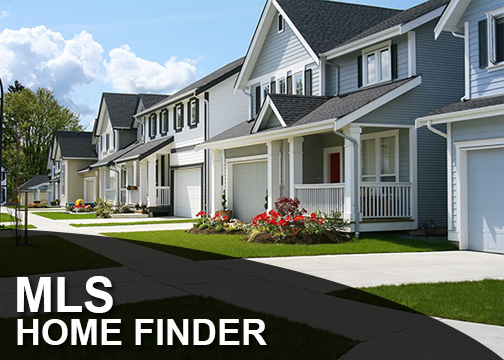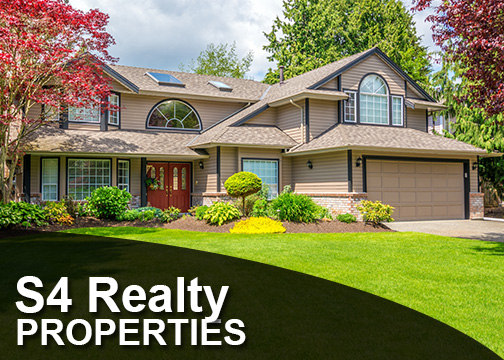 Buying a home is an exciting and complex process. It can also be a very time-consuming and costly one if you’re not familiar with all aspects of the process, and don’t have all the best information and resources at hand.
Buying a home is an exciting and complex process. It can also be a very time-consuming and costly one if you’re not familiar with all aspects of the process, and don’t have all the best information and resources at hand.
One of our specialties is representing the best interests of our buyers throughout the home buying process. Our comprehensive, high-quality services can save you time and money, as well as make the experience more enjoyable and less stressful.
If you’re like most people, buying a home is the biggest investment you will ever make. So whether you’re buying a starter home, your dream home or an investment property, why not take advantage of our experience as a local market expert for Maryland and Virginia to make the most informed decisions you can, every step of the way?
 How to Choose a Neighborhood for Your
How to Choose a Neighborhood for Your
Home Search
Narrow your home search by identifying neighborhoods that are right for you. This helps keep your search focused and efficient. Your local S4 Realty agent can offer neighborhood information to guide you in your search.
Neighborhood Search Strategies
If you’re a first time-buyer with limited financial resources, it’s wise to buy a home that meets your primary needs in the best neighborhood that fits within your price range. You can maximize your home purchase location by incorporating some of the following strategies into your neighborhood search:
Upcoming neighborhoods:
Look for communities that are likely to become “hot neighborhoods” in the coming years. They can often be discovered on the periphery of the most continuously desirable areas.
Check for planned future development such as additional transit; new community services such as pools and theatres; and chain stores planning to move in.
Look for a home in a good neighborhood that is a bit farther out of the city. If commuting is a concern, purchase a home that is close to public transportation.
Neighborhood demand:
Look at the neighborhood demand by asking your real estate agent whether multiple offers are being made, whether the gap between the list price and sale price is decreasing and whether there is active community involvement. You can also drive around neighborhoods and see how many “sale pending” and “sold” signs there are in a particular area.
 Here are some tips to help determine which house is best for you.
Here are some tips to help determine which house is best for you.
Once you’ve settled on a couple of preferred neighborhoods for your home search, it’s time to pick out a few homes to view. Having a house features “wish list” keeps you focused on which features are most important to you.
When narrowing down your home search, consider the following:
know what types of home you want to buy
determine what age and condition of the house you want to buy
consider resale potential
use a features wish list to keep focused
use a home search comparison chart to keep organized
act decisively when you find the right home
Determine What Type of Home You Want to Buy
There are several forms of home ownership: single-family homes, multiple-family homes, condominiums and co-ops.
Single-family homes: One home per lot.
Multiple-family homes: Some buyers, particularly first-timers, start with multiple-family dwellings, so they’ll have rental income to help with their costs. Many mortgage plans, including VA and FHA loans, can be used for buildings with up to four units, if the buyer intends to occupy one of them.
Condominiums: With a condo, you own “from the plaster in.” You also own a certain percentage of the “common elements” – staircases, sidewalks, roofs, etc. Monthly charges pay your share of taxes and insurance on those elements, as well as repairs and maintenance. A homeowner’s association administers the development.
Co-ops: In some cities, cooperative apartments are common. With co-ops, you purchase shares in a corporation that owns the whole building, and you receive a lease to your own unit. A board of directors, comprised of owners and elected by owners, supervises the building management. Monthly charges include your share of an overall mortgage on the building.
Decide What Age and Condition of Home You Want to Purchase
Weigh your needs, budget and personal tastes in deciding whether you want to buy a newly constructed home, an older home or a “fixer-upper” that requires some work.
Consider Resale Potential
As you look at homes, you may want to keep in mind these resale considerations.
One-bedroom condos are more difficult to resell than two-bedroom condos.
Two-bedroom/one-bath single houses generally have less appeal than houses with three or more bedrooms, and therefore have less appreciation potential.
Homes with “curb appeal,” i.e., well-maintained, attractive and with a charming appearance from the street, are the easiest to resell.
The most expensive houses on the street, or ones with anything unusual or unique are not suited for resale. The best investment potential is traditionally found in a less expensive, more moderately sized home.
Use a Features Wish List to Keep Your Search Focused
Make a features wish list to clarify which features are most and least important to you when looking for a home. Using this features wish list will keep your house hunt focused and effective.
Use a Home Comparison Chart to Keep Your Observations Organized
While house hunting, it’s a good idea to make notes about what you see because viewing several houses at a time can be confusing. Use a home comparison chart to help you keep track of your search, organize your thoughts and record your impressions.
Act Decisively When You Find the Right Home
Before you begin the home buying process, resolve to act promptly when you do find the right house. Every REALTOR® has stories to tell about a couple who looked far and wide for their dream home, finally found it, and then said, “We always promised my Dad we’d sleep on it, so we’ll make an offer tomorrow.” Many times the story had a sad ending – someone else came in that evening with an offer that was accepted.
Resolve that you will act decisively when you find the house that’s clearly right for you. This is particularly important after a long search or if the house is newly listed and/or underpriced.
Home Inspections Avert Future Headaches
Suppose you bought a house and later discovered, to your dismay, that the stucco exterior concealed a nasty case of dry rot. Or suppose that when you fired up the furnace in the winter, you discovered a cracked heat exchanger leaking gas into your home. The best way to avoid unpleasant surprises like these is to arrange for a home inspection before you buy.
Home Inspections Help You Avoid Unpleasant Surprises
A good home inspection is an objective, top-to-bottom examination of a home and everything that comes with it. The standard inspection report includes a review of the home’s heating and air-conditioning systems; plumbing and wiring; roof, attic, walls, ceilings, floors, windows, doors, foundation and basement.
Getting a professional inspection is crucial for older homes because age often takes its toll on the roof and other hard-to-reach areas. Problems can also be the result of neglect or hazardous repair work, such as a past owner’s failed attempt to install lights and an outlet in a linen closet.
A home inspection is also a wise investment when buying a new home. In fact, new homes frequently have defects, whether caused by an oversight during construction or simply human error.
An Inspection Will Educate You about Your House
Education is another good reason for getting an inspection. Most buyers want to learn as much as they can about their purchase so they can protect their investment. An examination by an impartial home inspector helps in this learning process.
Ask if you can follow the home inspector on his or her rounds. Most inspectors are glad to share their knowledge, and you’ll be able to ask plenty of questions.



